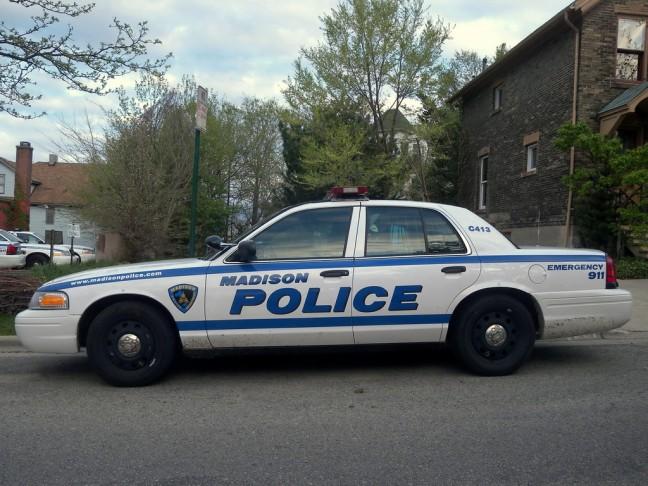Following President Barack Obama’s executive order calling for police departments nationwide to implement body cameras, city officials are again pushing to bring the cameras to Madison.
The call for body cameras and increased transparency came after the death of unarmed Michael Brown in Ferguson, Missouri, by a police officer in August.
Ald. Scott Resnick, District 8, has been a leading proponent for MPD’s implementation of body cameras since then. Now, after President Obama issued an executive order for $263 million to go toward police across the country, including $75 million for the purchase of around 50,000 body cameras, Resnick said he is encouraged by the president’s action.
“I believe this helps alleviate any funding arguments and provides, in the short term, a funding strategy that the city of Madison should investigate and explore,” he said.
Though details have yet to be released, Resnick said he believes the federal program would provide a 50-50 funding match for those police departments willing to participate in the body camera program as well as training for education and community outreach between the police department and the local communities.
However, Madison Police Chief Mike Koval said he is cautious to assume the cameras are an end-all solution.
“I have to sort of be the person to exercise some measure of restraint, because I’m concerned that cameras may be this shiny toy under the Christmas tree that everybody pines for, and it’s not going to be the one-size-fits-all cure all for all of those misdeeds of police activity and misconduct,” Koval said. “I’m concerned everybody has sort of jumped to this conclusion that cameras will save civilization as we know it.”
Koval said an ad-hoc committee examining the potential benefits and concerns of the cameras will form next year. If the committee decides the cameras are a viable option for Madison, Koval said a pilot program will begin 2016.
According to an MPD report, the estimated costs for implementing body cameras is about $955,000.
Koval said he does not disagree with Resnick on any of the philosophical thinking behind the push for body cameras. However, while Resnick is looking out for the concerns of the public, Koval said he needs to look at the entire city, public and police, as a whole.
Luckily, Koval said he thinks Madison’s residents are at a much better level of trust than residents of some other cities across the country who are requesting the cameras.
“I don’t believe we have palpable, manifest tension here in Madison between police and the community, quite the contrary,” Koval said. “I think we have a fairly healthy relationship … as evidenced by the post-Ferguson verdict [gathering].”
Resnick said he sees the cameras as a win-win situation for both the public and the police department. He said the cameras would allow officers who have been wrongly accused to be vindicated as well as give residents protection from possible police misconduct.
In addition, Resnick said the Ferguson incident is an example of what could have been changed if body cameras were present.
“We need to learn from what occurred in Ferguson … we need to be looking at better solutions, and I believe body cameras really can shed so much,” Resnick said. “If we had actual film and footage of what occurred on that day, this may be a very different conversation both for the public and law enforcement.”
Koval said he still has concerns with the idea of these cameras, such as the possibility that having a camera present might hinder the interaction between officer and resident and lead to concerns about individuals’ privacy. Also, MPD already uses a number of different cameras on a daily basis, he said, from traffic cameras to car-mounted ones.
All of the possible concerns and benefits will be evaluated by the ad-hoc committee next year, Koval said. For now, he said it is important that the city does not think this will fix everything.
“This is not a simple fix, and the deeper fix has to be rooted in how we police our people, not how we capture those transactions,” Koval said. “The relational elements of policing will always supersede what the technology captures.”












